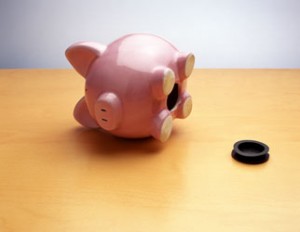Coping with a pension shortfall
What do you do if you are retired and your pension doesn't cover your needs? Bruce Sellery says it's time to make some tough decisions.
Advertisement
What do you do if you are retired and your pension doesn't cover your needs? Bruce Sellery says it's time to make some tough decisions.

Share this article Share on Facebook Share on Twitter Share on Linkedin Share on Reddit Share on Email